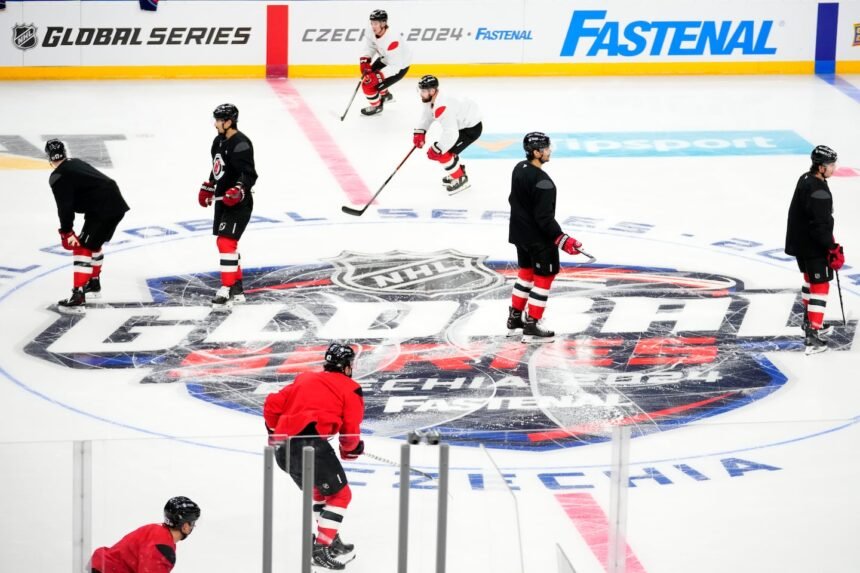Perhaps no better example of a split squad with 20-something players toiling in Prague and another 20-something working at the south end of Broad Street, Philadelphia. Those are l-o-n-g line changes.
Early in the 2021-22 season, with Bruce Cassidy unknowingly working his final season behind the Boston bench, Zboril looked like he finally figured out the NHL game. He was solid, strong, and gaining confidence by the shift. But 10 games into the season, he mashed up a knee during a game in Nashville.
ACL surgery ended his season, and ostensibly his Boston career. He suited up only 22 times the next season and played exclusively in AHL Providence last season before the Bruins finally wheeled him to Columbus in the March trade deadline swap for Andrew Peeke.
The Bruins and Coyotes met in Prague in October 2010. What proved to be the start of Boston’s lone successful Stanley Cup run since 1972.
Fans love the NHL brand in Czechia, long rumored as a potential home for a franchise if hockey becomes the first of the four major North American leagues to expand to Europe. The idea seems farfetched, but keep in mind, the thought of dropping an NHL franchise, or any pro franchise, in Las Vegas once was considered ludicrous. Now, the Golden Knights have a Cup to behold and a building just off the Strip that sells out night after night. Just crazy, if it weren’t so real.
Prague, where the NHL stages games at the O2 Arena for around 20,000, might be able to support year-round NHL action without actually having a home team. Crazy, too? Maybe. But follow along.
It would take scheduling creativity, but with 32 teams, the league could place four at a time in Prague for 12-14 days. All clubs would play six games — two vs. each opponent. Over the 26-week October-April regular season, that’s eight four-team “drops” with a one-week break between the cast changes. Hand-in-glove-and-blocker.
Prague, while ideal, would not be alone to consider among major European puck-loving cities. Helsinki and Stockholm also would fit the bill. As would Moscow and St. Petersburg, if geopolitics ever made sense.
The downside is lost (ever-important) gate revenue across North America, but that would be three of 41 dates per team, and a substantial amount of those dollars should be recoverable in the revenue collected in Europe.
If fully embraced, the on-site merchandising has the potential to drive substantial hockey-related revenue and, most important, expand the NHL brand ahead of all other major North American sports leagues.
Let the vacation packaging begin. The Bruins in Prague for two weeks with, say, the Penguins, Predators, and Golden Knights? Let the pucks and pilsnah flow.
Kevin Paul Dupont can be reached at kevin.dupont@globe.com.










